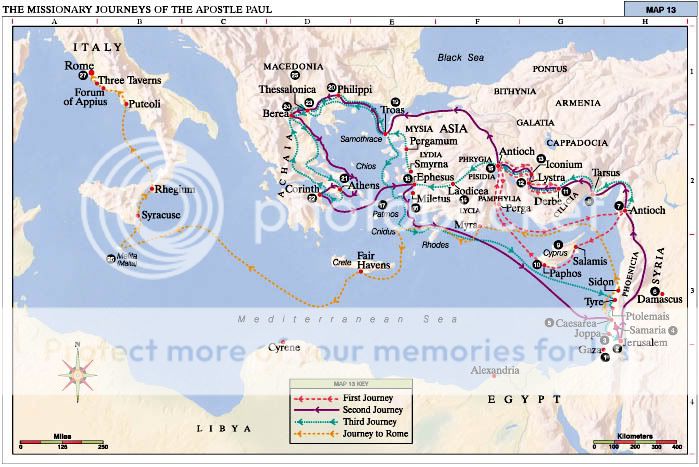Bishka
Veteran Member
First of all, I'd like to thank everyone that will be participating in this thread. I believe this will be a good discussion for all involved. My aims in this thread are to help us all understand and discuss in an intelligent and kind manner about what we see in the Epistle to Titus and hopefully continue this onto other discussions.
To start out, I would like everyone who wishes to be involved introduce themselves with a short paragraph. If you could include your religious persuasion and what you hope to get out of this thread, that would help us all understand where you are coming from.
And to start out this thread, from reading the Epistle to Titus what would you say would be the overlying/underlying (??) theme and provide one or two verses supporting your idea.
Lets get this ball rolling...
Edit: To give a little more historical context and visual aid, here is a map in which represents Paul's day and his missionary travels. The Epistle to Titus has to do with the island of Crete, because that is where Titus was assigned as a Church Leader by Paul.

To start out, I would like everyone who wishes to be involved introduce themselves with a short paragraph. If you could include your religious persuasion and what you hope to get out of this thread, that would help us all understand where you are coming from.
And to start out this thread, from reading the Epistle to Titus what would you say would be the overlying/underlying (??) theme and provide one or two verses supporting your idea.
Lets get this ball rolling...
Edit: To give a little more historical context and visual aid, here is a map in which represents Paul's day and his missionary travels. The Epistle to Titus has to do with the island of Crete, because that is where Titus was assigned as a Church Leader by Paul.

